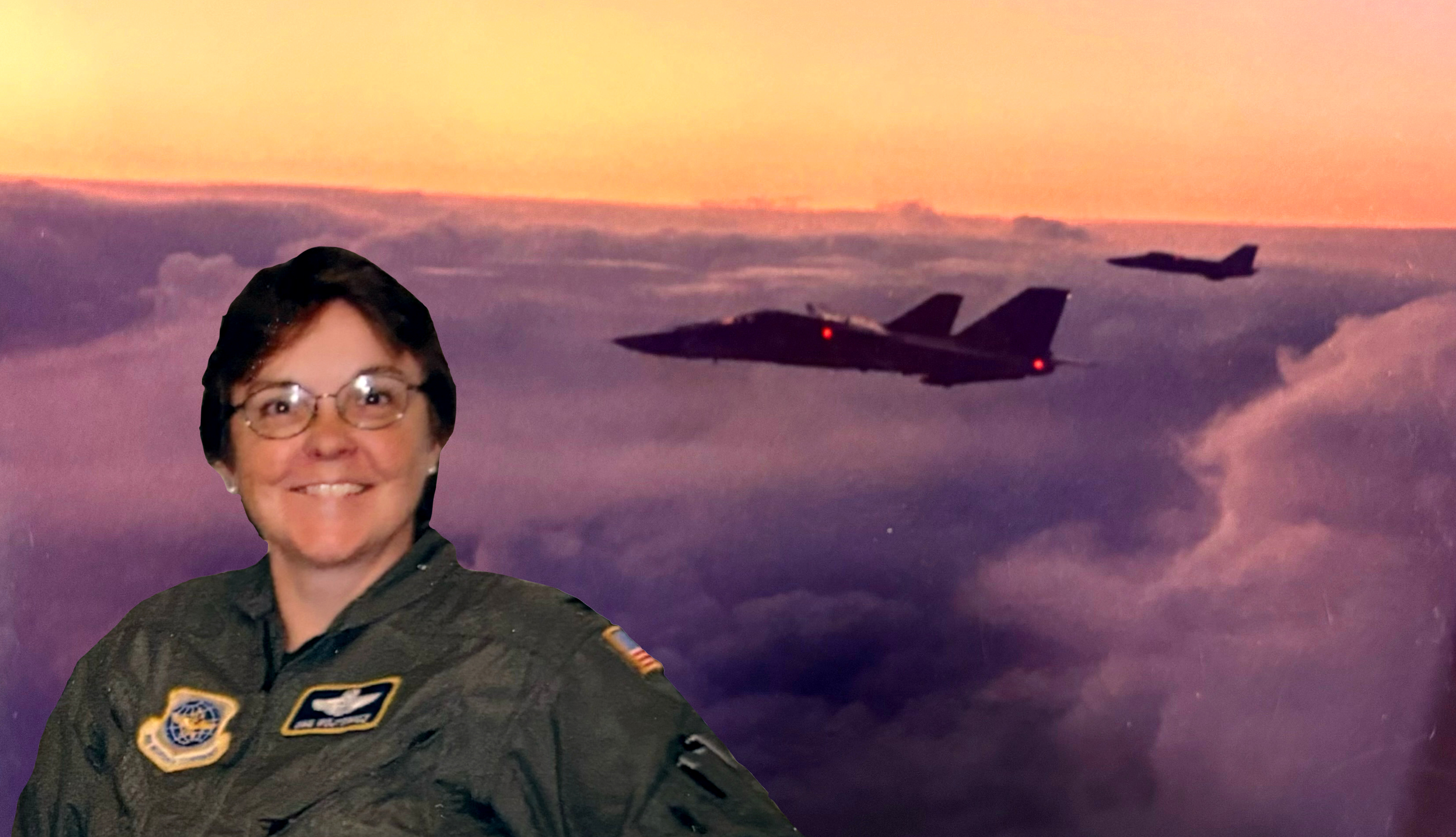
This air force pilot made 1986 libya raid possible
- Select a language for the TTS:
- UK English Female
- UK English Male
- US English Female
- US English Male
- Australian Female
- Australian Male
- Language selected: (auto detect) - EN
Play all audios:

Gail Wojtowicz didn’t intend to make history when she joined the Air Force in 1980. But in April 1986, she and six other female aviators refueled fighter aircraft during a raid on Libya. The
women didn’t engage the enemy in combat — a 1948 law prohibited that — but their proximity to the combat zone raised eyebrows. By 1986, women had flown as military aviators for more than a
decade, but each commander interpreted the law’s vague wording differently; some allowed women to fly combat-related missions and some did not. For the Libya raid, Wojtowicz’s commander
sided with the women. With three older brothers serving as Air Force enlisted members and an uncle who retired as a lieutenant colonel, Wojtowicz — known as Wojo — “always saw blue suits
growing up and thought it was pretty cool.” The Michigan native also liked the idea of a team with everyone “all wearing the same uniform and fighting for each other.” _You can subscribe
here to AARP Experience Counts, a free e-newsletter published twice a month. If you have feedback or a story idea then please contact us here._ But in the late 1970s, women weren’t yet
joining the military in large numbers. Instead, after graduating from Ferris State College with a degree in advertising, she earned a master’s and pondered getting a Ph.D. But then
conversations with a Vietnam veteran in one of her classes convinced her she was missing out on something. An Air Force recruiter quickly scooped her up, but she broke her leg while
skydiving, which delayed her entry to Officer Training School. After commissioning in 1981, she headed to navigator training. Graduating second in her navigator class, she had her choice of
aircraft as long as it wasn’t a fighter or a bomber, since a law at the time forbade women from flying combat aircraft. Wojtowicz chose the KC-135Q tanker, which refueled the SR-71
reconnaissance aircraft. Arriving at Royal Air Force base Mildenhall in the U.K., Wojtowicz didn’t even unpack her bags before she was assigned to a team planning tanker support to a highly
classified mission: a raid to bomb targets in Tripoli in response to Libya-sponsored terrorist attacks in Europe. The mission called for U.S. Air Force F-111F fighter-bombers and EF-111A
electronic attack aircraft based in the U.K. to join forces with carrier-based U.S. Navy aircraft. The Air Force planes required aerial refueling support to make the seven-hour round-trip
flight. After two weeks of planning, Wojtowicz and her team learned the date of the raid — April 14, two days later. But the next day, they were told that U.S. aircraft would not be
permitted to fly over France. The new flight path to the west over the Atlantic Ocean doubled the mission length to 13 hours and tripled the number of tankers to 28.
